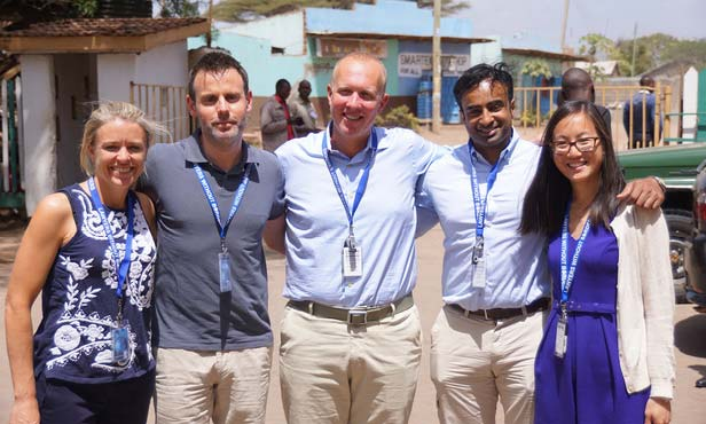
The Organization
Lawyers Without Borders is a non-profit organization that utilizes the pro bono work of lawyers across the world to volunteer in global rule of law, capacity building and access to justice initiatives. Lawyers working with the organization are involved in projects throughout the world as wide ranging as rights of the child, gender based violence, wildlife crime, corruption, electoral violence and tax compliance issues. The organization addresses these issues through various methods, including trial advocacy training, mediation training, neutral trial observation, community outreach, and policy guidance. In Africa the organization is involved with capacity building efforts in many countries, including Rwanda, Sierra Leone, Ethiopia and Kenya. The work in these countries involves issues of child labor, human trafficking, due process and wildlife crime. More information on the organization can be found here.
Wigdor LLP Involvement
Even as a small firm, Wigdor LLP has a large commitment to giving back to our local and international community. In June 2016, founding Partner Douglas H. Wigdor, alongside Senior Associate Renan Varghese and Associate Elizabeth J. Chen, travelled to Kenya to join a Lawyers Without Borders initiative addressing wildlife poaching in Kenya. Wigdor LLP joined a team of two attorneys from Shearman & Sterling LLP, Beau Buffier and Heather Kafele, who also participated in the initiative.
Poaching is a major issue in Kenya and surrounding countries. In Kenya, the majority of poaching targets elephants and rhinos, having a serious and detrimental impact on wildlife diversity in the country. Poaching also has links to global crime, with the involvement of international criminal organizations. These groups are involved with poaching as well as having links to human trafficking, money laundering and drug trafficking; this has made poaching an increasingly difficult crime to control. It is an ongoing problem which the Kenyan 2013 Wildlife Act sought to address, introducing stricter penalties aimed at encouraging conservation. However, the Wildlife Service Officers who are tasked with investigating and prosecuting poachers do not have the resources and skills necessary for successfully prosecuting poachers. Our attorneys are highly experienced in litigation; this program utilized their wealth of experience to teach best practices in the investigation and prosecution of wildlife crime in Kenya.
The group spent five days in the Kenyan regions of Isiolo and Nanyuki, training approximately forty-five Kenyan Wildlife Service officers. The training focused on evidence collection, witness interviews, examination, and investigation techniques. Importantly, the teaching also incorporated tips on presentation and public speaking. This will allow the training delivered by attorneys to be communicated to other officers, ensuring that it reaches a much wider audience.
The initial stages of planning for Lawyers Without Borders began almost twelve months prior to departure, with many hours of research going into the preparation. Before travelling, attorneys needed an in-depth knowledge of the relevant law, in particular the 2013 Wildlife Act, as well as relevant regional legislation, poaching case law and ongoing poaching cases in Kenya. Attorneys also had to have an understanding of the underlying causes of wildlife trafficking and its role within the Kenyan economy as well as the types of animal that were most frequently poached and the present security issues faced by officers.
This lengthy research allowed attorneys to highlight the issues faced by prosecutors in Kenya and allowed them to tailor the training to focus specifically on those issues which were most vital. Many hours were spent organizing information to be presented in a way that would be most effective to the Kenyan officers. These proposals focused on collecting the best evidence by preserving the crime scene, photographing the scene and analyzing the area for all evidence. Our attorneys also focused on interview techniques, procedures for storing evidence, documenting all steps of the investigation and finally putting a case together.
Whilst passing along our knowledge and expertise as trial litigators, our team found that working alongside members of the Kenya Wildlife Service was highly educational and informative. They gained a unique insight into the daily risks involved in tracking poachers, and the frustrations of wildlife officers who routinely catch poachers who are never prosecuted.
The Firm’s pro bono trip with LWOB was recently featured in an article in the New York Law Journal, which can be found below.
New York Law Journal
“Pro Bono NY Lawyers Train Kenyans to Better Prosecute Poaching”
July 20, 2016
Read PDF